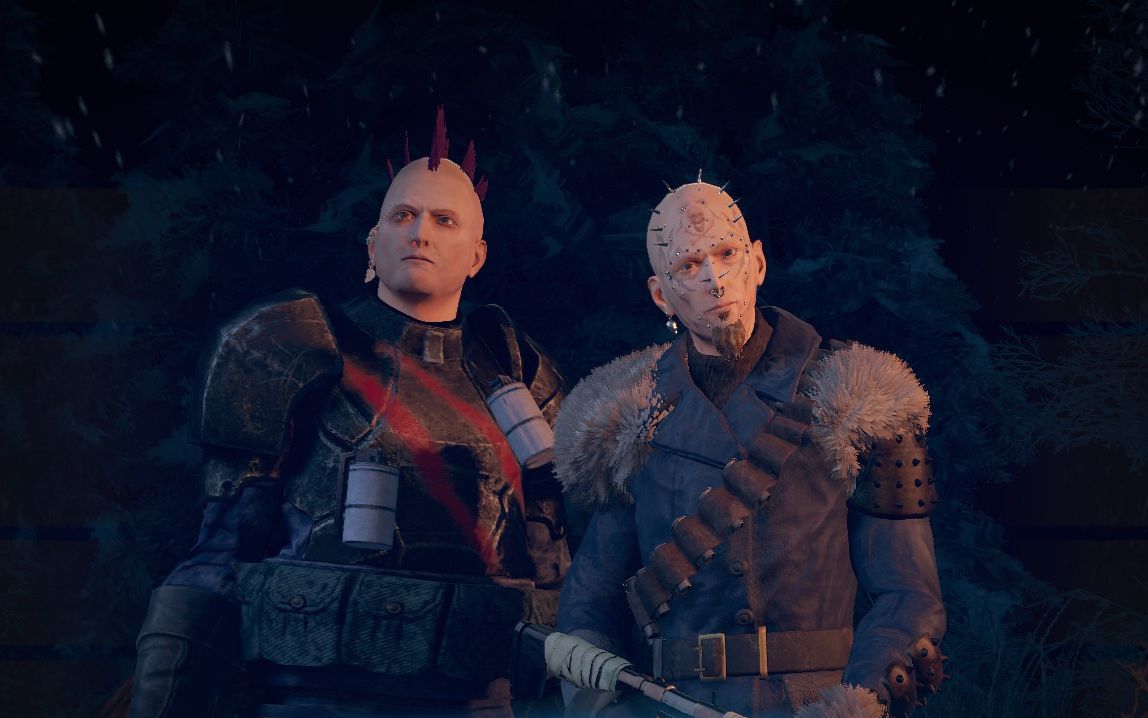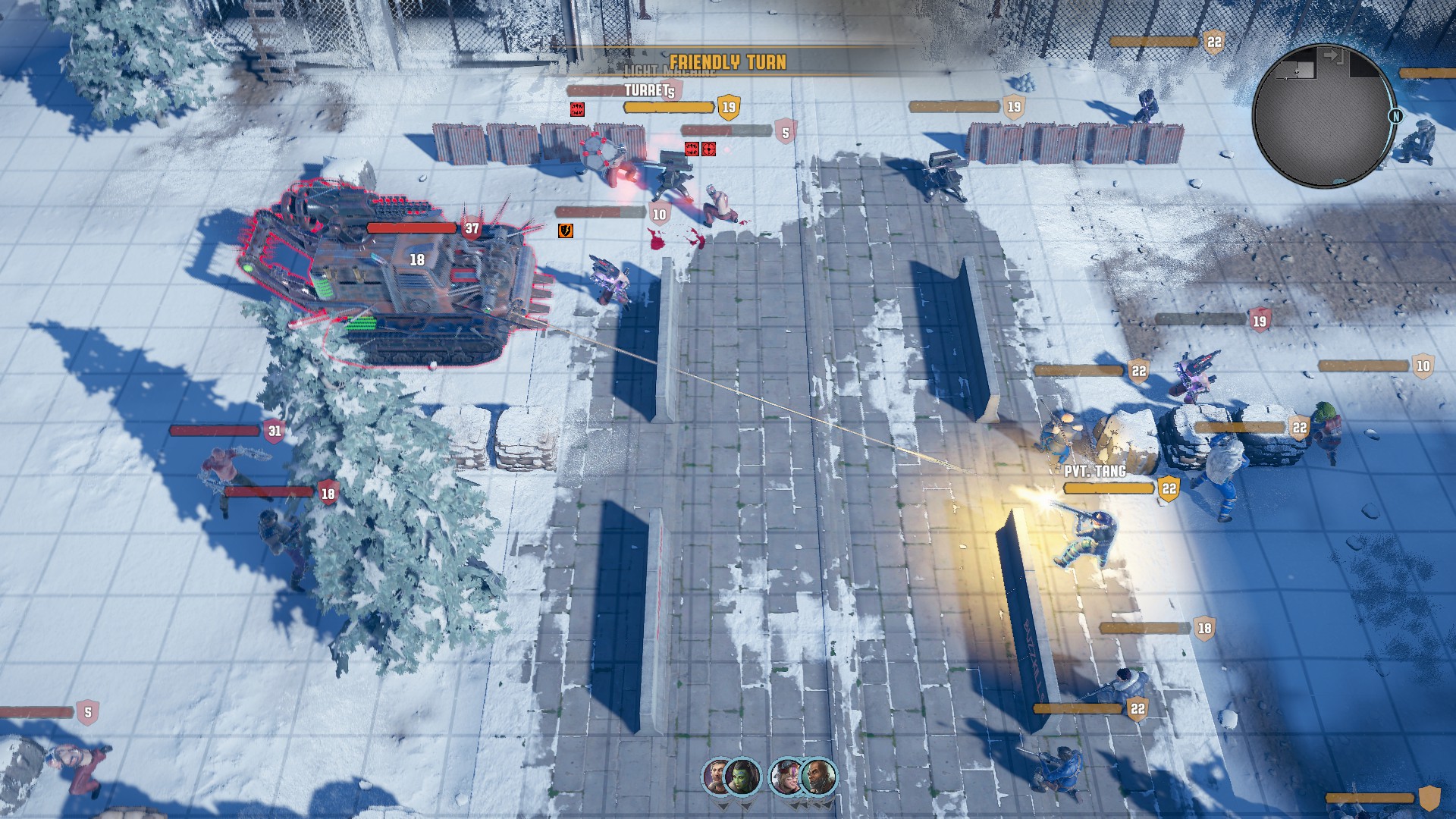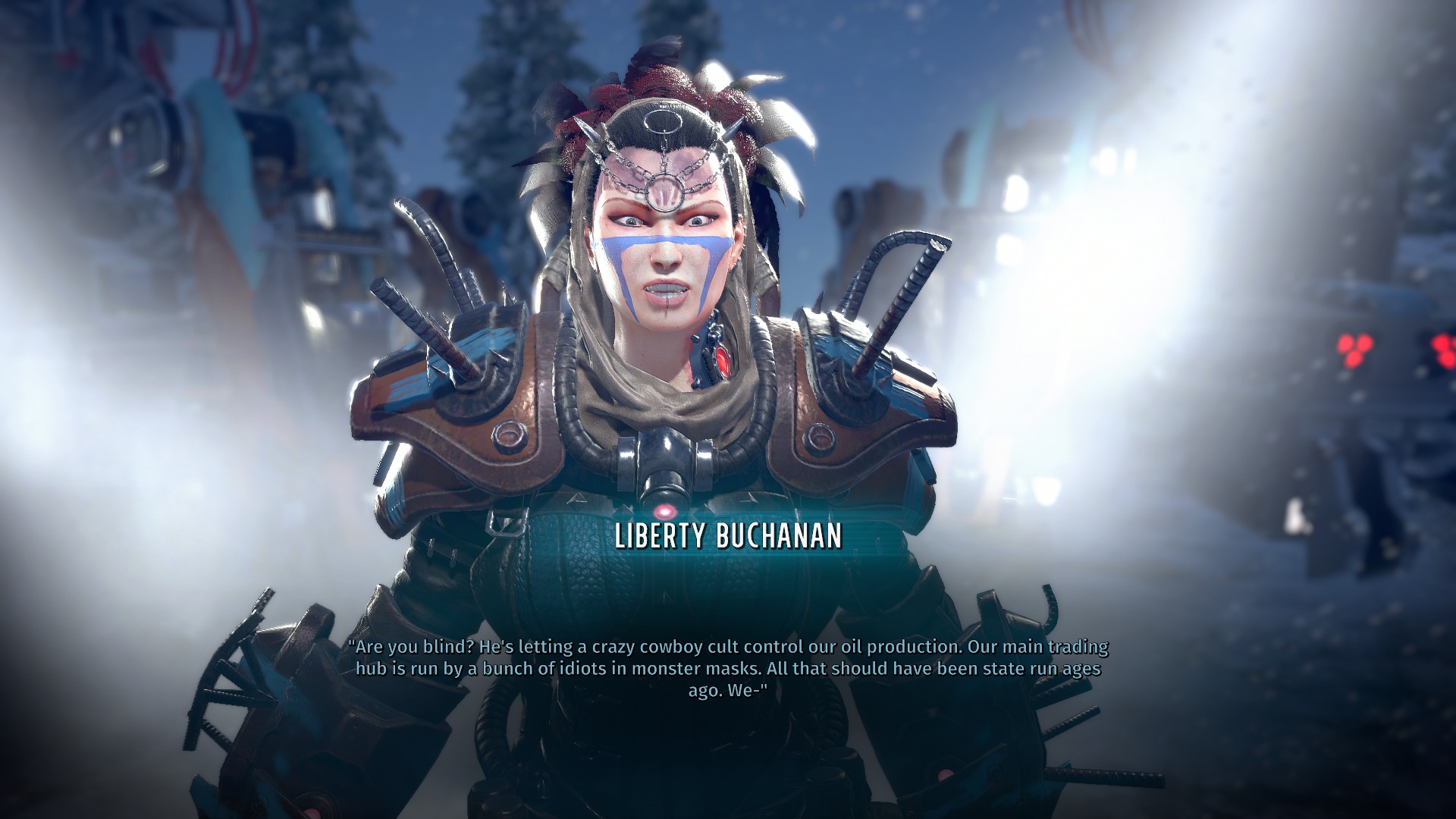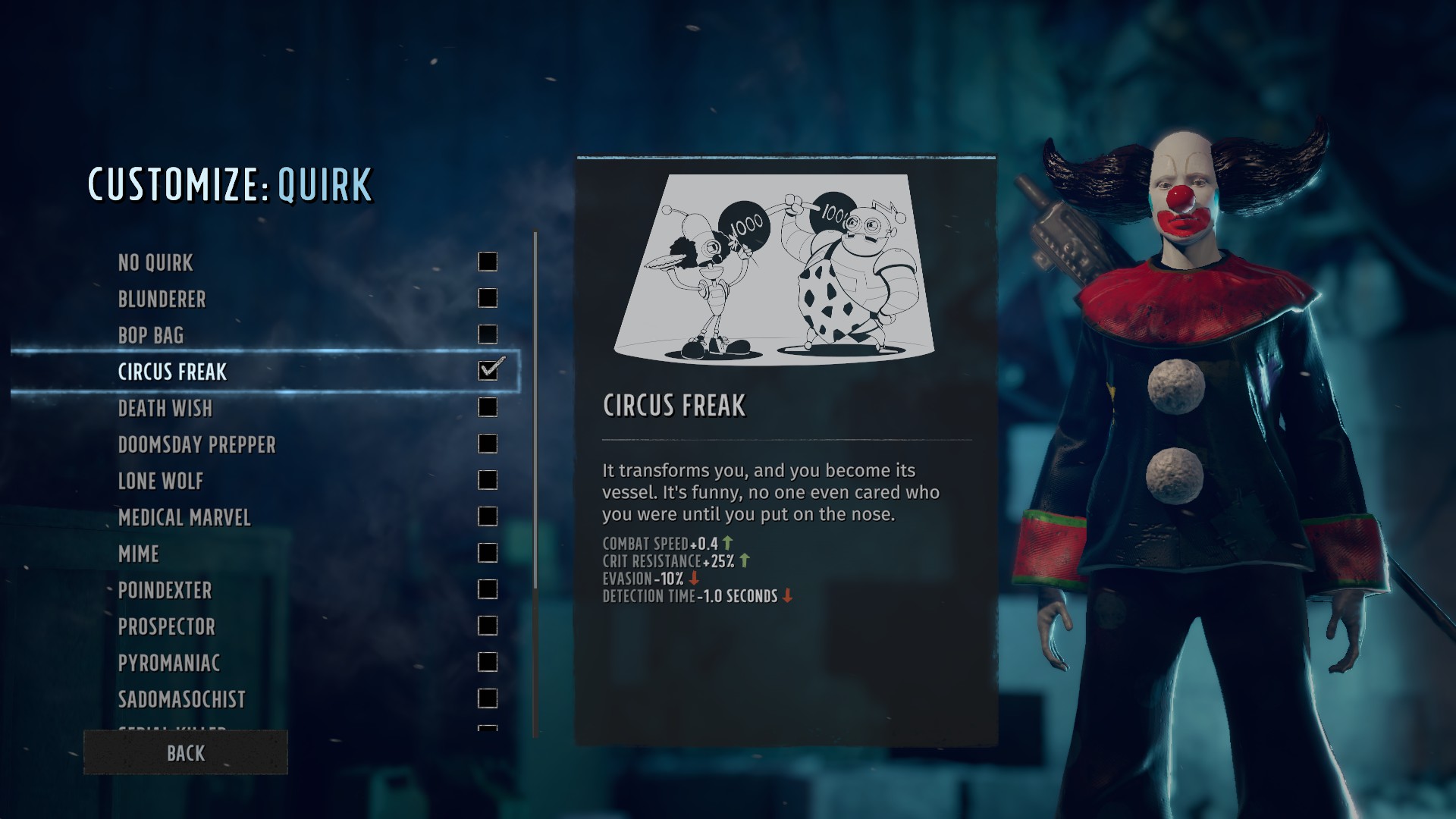Wasteland 3 isn't 100 hours long, unless you want it to be
It's a big, meaty RPG, but it still let me wrap up in a hurry.

Before Wasteland 3 came out, the word direct from inXile was that it "rewards exploration and its reactive world packs 80-100 hours of content for the most thorough players." For those of us who aren't the most thorough—who do sidequests that sound interesting and skip the rest, who don't feel a need to scrub every smudge of fog off the map like it's a dirty pane of glass—statements like that sound intimidating. I like a game that lets me wallow in it, poking the corners and chatting to every shopkeep in the marketplace, but I also like a game that lets me stop wallowing when I feel late-game fatigue setting in and gives me the option to beeline to the ending.
Wasteland 3, to my pleasant surprise, is exactly that kind of game.
Coming close to the 50-hour mark I decided to stop dilly-dallying and just knock down the plot-critical missions one after another, even if I did have to reload a couple more fights than usual because I was under-leveled for them. With a party 10 levels below the cap, I made it to the final battle and won it handily, with 47 hours on the clock. Cue slideshow, complete with bespoke song, and roll credits.
It could have been even shorter. Wasteland 3 has a bunch of endings that can be triggered before its final chapter, whether by blowing yourself up, taking the side of one of its "villains," or killing the plot-critical Patriarch himself (whether you kill the Patriarch early in the game by cheating, or wait until you've leveled-up enough to do the equivalent of killing Lord British in an Ultima game the legit way).
People sometimes suggest that reviewers over-rate shorter games because we just want to finish up so we can move onto the next. Anyone who doesn't play games for a living wants each one to last as long as possible, while reviewing games professionally transforms us into jaded mayflies, goes the theory.
But I've always enjoyed games that don't force you to no-life them just to find out how they end. Like the original Fallout, to pick a relevant example. The first Fallout (and still the best, don't @ me) averages 22½ hours for a "main + extra" playthrough according to howlongtobeat.com. Meanwhile, a pure main questline run might only take 16½ hours. Sounds short, huh?

When I finished Fallout for the first time, I definitely wanted more. So I immediately made a new character, started over, and played the whole thing again just to see how different it could be. It's the perfect way to play an RPG with a reactive world and characters who pay attention to what you say and do. You get to see how differently choices play out while your original decisions are still fresh in your mind.
Keep up to date with the most important stories and the best deals, as picked by the PC Gamer team.
As the Fallout games got longer and longer, it got harder to play that way. Fallout 4's Game of the Year Edition has an average playtime of 109 hours. That's not just a long time for a professional critic to spend on one game—that's a long time for anyone. Games being this long is the reason all my friends with children are only just finishing The Witcher 3 now.
I feel like I could have easily squeezed another 10 satisfying hours out of Wasteland 3 by exploring the clown museum, wiping the cannibals off the map, and trying to figure out what the deal is with all the golden toaster components I collected (apparently there is something worthwhile waiting for you if you track down all of them, but I won't spoil it here). But I'd rather finish a choice-and-consequence RPG with options left unexplored so my eventual second playthrough doesn't run out of juice.

Which is exactly what happened when I went back to replay Wasteland 2 when its director's cut came out and never even made it to California. It seems like inXile have learned a few things from their previous RPG's faults, and taking well over 60 hours to finish even with your skates on was one of them.
Something unique about videogames is that they really end whenever we want them to. If that end comes after hundreds of hours of testing the limits, seeing every possible permutation of the plot, and starting over with wacky character builds, that's cool. But if we get bored and drift away unsatisfied, never knowing how the story plays out, that's the end as well—no matter how long it takes to happen.
The next time I play Wasteland 3 I'll explore even more of its nooks and crannies, because I'm still intrigued to discover the secrets they're hiding. Plus I've got a whole party's worth of ridiculous build ideas, pyromaniacs and circus freaks with submachine guns, ready to go.

- Wasteland 3 guide: 10 beginner's tips you need to know
- Wasteland 3 builds: Form a top team

Jody's first computer was a Commodore 64, so he remembers having to use a code wheel to play Pool of Radiance. A former music journalist who interviewed everyone from Giorgio Moroder to Trent Reznor, Jody also co-hosted Australia's first radio show about videogames, Zed Games. He's written for Rock Paper Shotgun, The Big Issue, GamesRadar, Zam, Glixel, Five Out of Ten Magazine, and Playboy.com, whose cheques with the bunny logo made for fun conversations at the bank. Jody's first article for PC Gamer was about the audio of Alien Isolation, published in 2015, and since then he's written about why Silent Hill belongs on PC, why Recettear: An Item Shop's Tale is the best fantasy shopkeeper tycoon game, and how weird Lost Ark can get. Jody edited PC Gamer Indie from 2017 to 2018, and he eventually lived up to his promise to play every Warhammer videogame.

